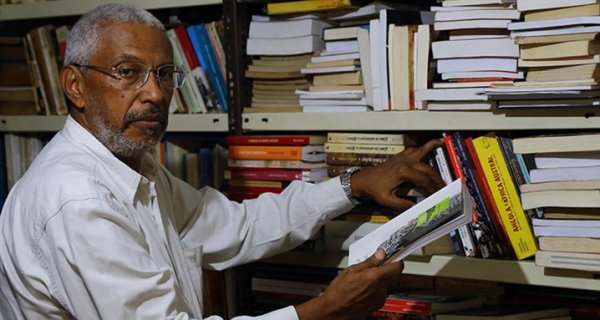Fernando Pacheco, now 74 years old, saw festive hugs from Portuguese friends celebrating the fall of the colonial regime in the then city of Nova Lisboa, now Huambo, in April, but he only 'exploded' with joy on July 27, 1974 with the intervention of the president of the National Salvation Board (JSN).
In an interview with Lusa, the academic and retired agricultural engineer said that he went with a friendly Portuguese couple, in Nova Lisboa, where he was finishing his higher education, that he learned about the fall of the colonial regime, "right after lunch".
The news of the revolution reached his home from a colleague and was confirmed by Portuguese friends, after tuning in to Radio Cairo (a Brazilian broadcasting service in Egypt).
"Then we were sure that, that morning, there had been a coup d'état in Portugal, which was the beginning of the so-called April Revolution", he reported.
The two Portuguese, linked to left-wing parties, "huddled a lot, they immediately saw not only the improvement in their personal situation, but also the possibility of improving the political situation", although they had some fear.
The fall of the Portuguese colonial regime fueled doubts, fears and uncertainties about the future of the Portuguese colonies, including Angola, especially because the president of the JSN (provisional government constituted by military personnel after the coup d'état), General António Spínola, "had no good image in relation to the future of the colonies", he considered.
Pacheco, a former senior member of the Popular Movement for the Liberation of Angola (MPLA), has in his personal library António Spínola's book "Portugal and the Future", which "shaked the regime", but he never read it, "due to the speed of events."
"We were so involved in the possible transformations that would happen in Angola that the book remained, let's say, pending and these pending issues [last] until today", he explained.
Aged 25 at the time, Fernando Pacheco recalled that he only celebrated the 25th of April to the 27th of July 1974, three months later, in Benguela, "with some comrades", after listening to General Spínola's speech, in which he recognized the " right of colonies to self-determination and independence".
Then it was time for hugs "in the same way as the Portuguese", who had already hugged on April 25th, he highlighted, recalling that this "unforgettable hug" took place on a Saturday afternoon.
"At the time of the 25th of April we were satisfied, but, let's say, with limitations, some restrictions, because we didn't really know what was going to happen. From the moment General Spínola's statement was heard (...) we thought that There were no more retreats and Angola was going to be independent", he stressed.
"That was one of the happiest days of my life", said the founding member of the Angolan NGO ADRA (Action for Rural Development and Environment) who is now a consultant, civic and political activist and collaborator at the University's Center for Studies and Scientific Research Catholic of Angola.
MPLA, National Front for the Liberation of Angola (FNLA), which emerged from the UPA (Union of Peoples of Angola), and the National Union for the Total Independence of Angola (UNITA) led the Armed Struggle for National Liberation against the Portuguese army.
For the former director of the MPLA's agrarian policy department during the single party period, the actions of the liberation movements in Angola, Mozambique and Guinea-Bissau eroded the Portuguese regime and also contributed to its fall on the 25th of April.
"The Portuguese army was worn out a lot, both in human terms and in material and financial terms," he said.
The former leader, currently critical of the country's social and economic situation, denied that the 25th of April had saved the MPLA from suffocation, due to the alleged weakening of this movement during the liberation struggle.
"At that time it was said that the MPLA was very weakened and that, if it weren't for the 25th of April, it would be defeated by Portuguese troops, now this is a historical untruth, because liberation wars have advances and setbacks", he maintained.
He acknowledged, however, that the movement was going through "a very difficult period", as a result of the Portuguese Government's alliance with South Africa and the then Southern Rhodesia, now Zimbabwe, to reach the East, the MPLA's guerrilla space.
"There was only talk about the weakening of the MPLA, but later history showed that the FNLA and UNITA were also weakened", he pointed out.
For Fernando Pacheco, the transition to Angola's independence, on November 11, 1975, "was complex, because things did not happen in a linear way (...). The transitional government [formed on January 31, 1975 with Portuguese leaders and the three liberation movements] it didn't work".
"Each one pushed things to their own side (...), none of the three movements thought about a real sharing, each one wanted to impose their own reason. I was an MPLA member and I have to recognize that, the MPLA also had its own idea of alienating others, for ideological reasons", he concluded, praising the scope of independence.







